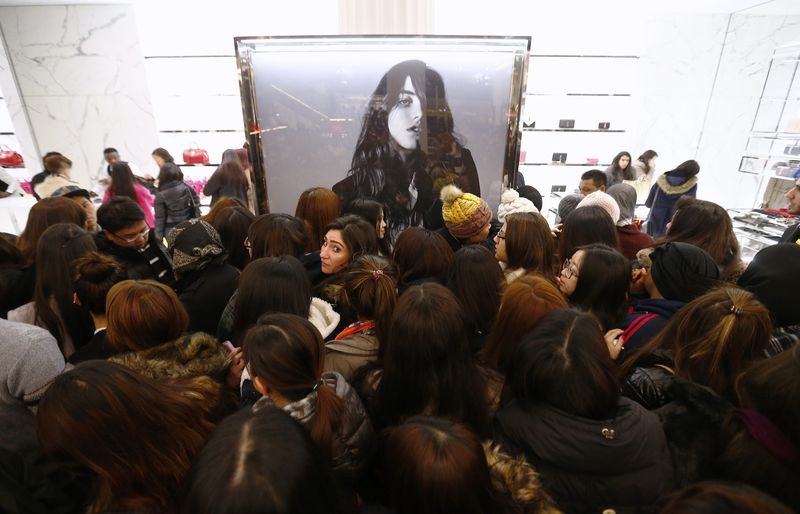LONDON (Reuters) - Significantly fewer Britons went out to shop on Boxing Day this year, initial data showed, suggesting pre-Christmas online discounts led many to spurn what is traditionally a bumper day for retailers.
Retail data company Springboard said footfall for the first three hours of Dec. 26 was down 10.5 percent year-on-year.
Many large retailers launch sales offering big discounts on Boxing Day to try to entice domestic and foreign consumers to engage in a second wave of buying after Christmas.
But Springboard said many shoppers would be making their purchases online.
"The scale of the drop this year falls outside of an ongoing retail trend," it said. "The double impact of early discounting and online shopping was clearly seen to negatively affect pre-Christmas footfall trends and it seems their influence cannot be ignored in relation to Boxing Day."
Diane Wehrle, the firm's retail insights director, said Christmas Eve footfall had also fallen 5.2 percent year-on-year.
"It is a worrying time for retailers. Christmas used to be a trading period which could be relied upon, but it has now become a battle-ground for consumers with price and convenience being the order of the day," she said.
Even so, some retailers reported record demand.
Bluewater centre in Kent said deep discounts were expected to draw enough shoppers to contribute to record annual results.
Retailers in London's West End said they expected customers to spend over 50 million pounds on Dec. 26, singling out Chinese, Nigerian and Middle Eastern buyers among top spenders.
Department store Debenhams said it expected "well over" 50,000 people in its Oxford Street branch alone.
And John Lewis said Christmas Eve orders from its online clearance sale were up 16 percent in the first hour compared to last year and that online orders hit a record, rising 19 percent year-on-year on Christmas Day.

Seventy-two percent of traffic had come from mobile and tablet devices, it said.
(Reporting by Andrew Osborn; Editing by Ruth Pitchford)